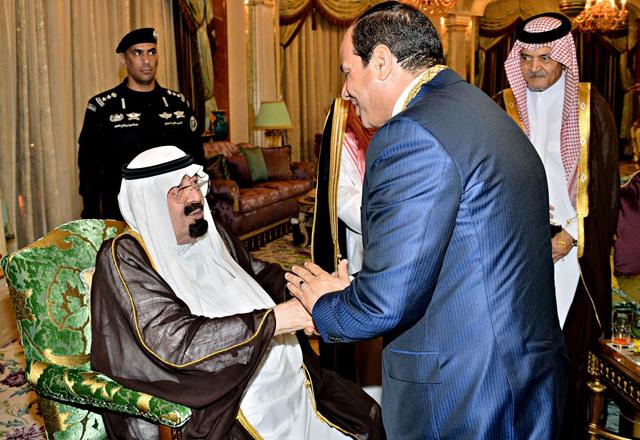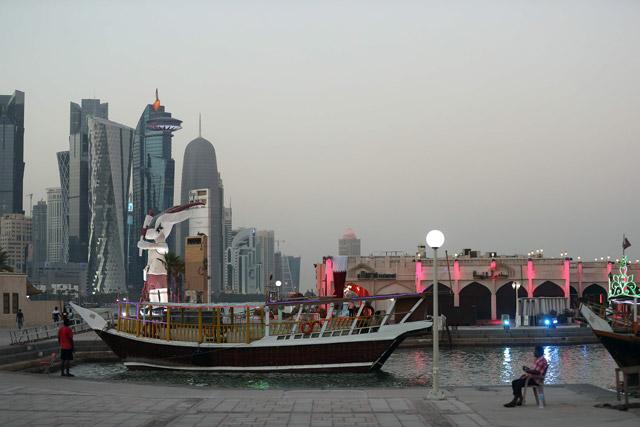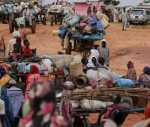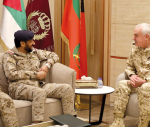You are here
Saudi Arabia lists ‘terror’ groups, orders foreign fighters home
By AFP - Mar 08,2014 - Last updated at Mar 08,2014
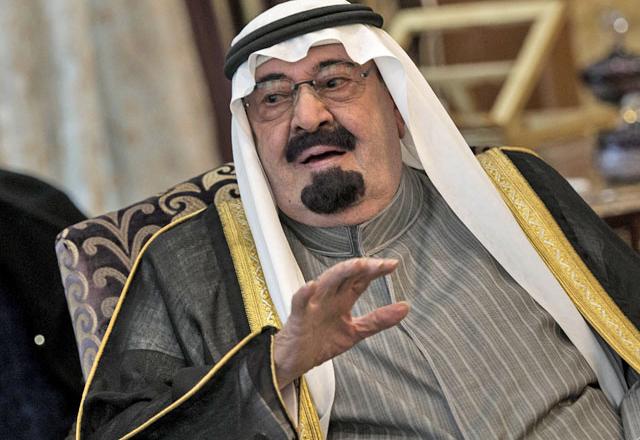
RIYADH — Saudi Arabia on Friday listed the Muslim Brotherhood and two Syrian jihadist groups as terrorist organisations, and ordered citizens fighting abroad to return within 15 days or face imprisonment.
The move represents a major escalation against the Muslim Brotherhood of deposed Egyptian president Mohamed Morsi and indicates rising concern in Riyadh over the possible return of battle-hardened Saudi extremists from Syria.
In addition to the Muslim Brotherhood, Saudi listed Al Nusra Front, which is Al Qaeda’s official Syrian affiliate, and the Islamic State of Iraq and the Levant (ISIL), a rogue group fighting in both Syria and Iraq, as terrorist organisations.
The interior ministry decree, which was released by state media, also listed as terrorist groups the Shiite Huthi rebels fighting in northern Yemen and “Hizbollah inside the kingdom”, apparently referring to a little-known Saudi Shiite group.
The order penalises involvement in any of the groups’ activities at home or abroad — including demonstrations — and outlaws the use of “slogans of these organisations”, including in social media.
It also forbids “participation in, calling for, or incitement to fighting in conflict zones in other countries”.
Riyadh is a staunch supporter of the Sunni-led rebels battling to overthrow Syrian President Bashar Assad but has long feared blowback from radical jihadist groups, particularly after a spate of attacks by a local Al Qaeda franchise from 2003 to 2006.
King Abdullah last month decreed jail terms of up to 20 years for belonging to “terrorist groups” and fighting abroad.
Similar sentences will be passed on those belonging to “extremist religious and ideological groups, or those classified as terrorist organisations, domestically, regionally and internationally”, state news agency SPA said at the time.
Supporting such groups, adopting their ideology or promoting them “through speech or writing” would also incur prison terms, the decree added.
Rights group Amnesty International sharply criticised last month’s decree, saying it could be used to suppress peaceful political dissent because the law used an “overly vague definition of terrorism”.
Saudi Arabia set up specialised terrorism courts in 2011 to try dozens of nationals and foreigners accused of belonging to Al Qaeda or being involved in a wave of bloody attacks that swept the country from 2003.
Rivalry with Qatar
Saudi Arabia and other conservative Gulf monarchies have long been hostile towards the Muslim Brotherhood, fearing that its brand of grass-roots activism and political Islam could undermine their authority.
The decision to brand the Brotherhood a terrorist group came a day after Saudi Arabia, Bahrain and the United Arab Emirates recalled their ambassadors from Qatar, which had been a staunch supporter of Morsi and backs Brotherhood-linked groups across the region.
It was an unprecedented escalation of tensions within the Gulf Cooperation Council — which also includes Kuwait and Oman — and was widely seen as signalling Gulf fury at Qatari support for Islamist groups following the 2011 Arab Spring uprisings.
It was also seen as a revival of the on-again, off-again rivalry between Riyadh and Doha, oil- and gas-rich monarchies that have long vied for regional influence.
Saudi Arabia hailed the overthrow of Morsi and pledged billions of dollars to Egypt’s military-installed government following his July 2013 ouster, and in recent months has eclipsed Qatar as the main backer of Syria’s rebels.
Egypt, which has launched a sweeping crackdown on the Muslim Brotherhood and detained reporters from Qatar’s Al Jazeera news network, on Thursday welcomed the Gulf countries’ decision to recall their envoys from Doha.
It said its own envoy, who has been in Cairo since early February, “will not return to Qatar at the present time, and his remaining [in Egypt] is a sovereign political decision”.
“It is for Qatar to clearly determine its position, whether it will stand on the side of Arab solidarity, unified ranks and protection of national security... or on the other side, and bear the consequences and responsibility for that,” a government statement said.
Related Articles
Egypt welcomed a Saudi call on Wednesday to back an agreement among Gulf Arab states that ended an eight-month dispute over Qatar's support for the Muslim Brotherhood and promotion of Arab Spring revolts.
The United Arab Emirates has thrown its support behind neighbouring Saudi Arabia’s decision to label the Muslim Brotherhood a terrorist organisation, increasing Gulf Arab pressure on the Islamist group.
DOHA — A deadline was approaching on Sunday for Qatar to accept 13 demands by several Arab states in return for lifting a de facto blockade.


